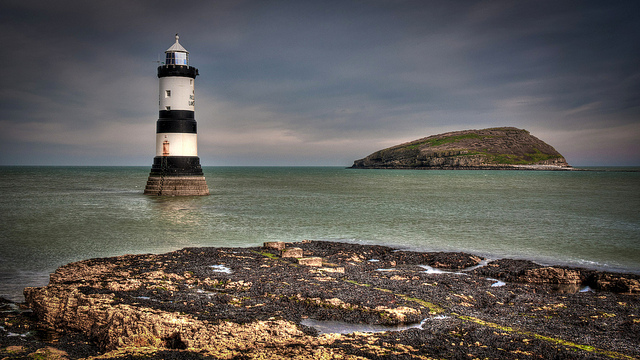Grief is a two-fold agony, because we are forced—with no distractions—to feel ourselves, while simultaneously longing for more of ourselves.
It requires us to feel the friction of its choppy seas, while searching for dry land, and I usually don’t feel up to swimming.
The only lighthouse we’ve got feels like it’s a million miles away, and we believe in that lighthouse—there’s a note waiting only for us, to assure us of a path that makes this swim worth it.
The only grieving I’ve ever related to is the grief of regret. I’ve lost friends like dominoes—to deaths induced by the lifestyle we chose. I’ve sat beside my grandparents and watched them die before my eyes.
I have not lost a child or a parent to death, but I have lost myself to a version of death, in the moments I’ve grieved a life un-lived.
Some may say, because I have not lost a child or a parent, that I do not understand grief. I’m open to them possibly being right about that.
However, I’m here to represent billions of people on this planet that swim in the sea of grief, as they watch a life they expected to have drift away.
I don’t believe we leave this world into death. I believe we leave this world into truth.
It feels as close to a death as one can know, without literally dying—when the vision we hold for life reflects a different scene back at us.
I grieved a childhood I’ll never know. I grieved a body that wasn’t perfect. I grieved a relationship that unfolded at the wrong time and in the wrong way.
Mainly, I grieved the Self in me that I’d hoped to know, by having all of the things I was grieving.
It’s great to identify with our visions, because then we can create them.
The grief of regret happens when visions have become our identity, and we cannot separate the notion that one is merely a vision, and one is a stoic reality. We feel that because one is gone, the other is gone. We believe the un-manifest vision is who we are supposed to live into, and without it, we are less than who we were before we created it.
Grief is confusing, but it has taught me the endurance to withstand swimming, and it’s given me the compass to an island less confused than its choppy seas.
The water, the island, the lighthouse and the swimmer are all inside of me, and it feels exhausting to know which one is the Truth, when I view them as separate.
After swimming so long, I doggy paddle just to stay afloat. The idea that there is a lighthouse out there to guide me, fades into the distance, but it shines from time to time as a tease that, somewhere, that damn note is waiting for my arrival. Eventually, there is no coherent possibility that there is even an island out there that doesn’t require any work to maintain myself on.
It is work to get out of the sea of grief, and I’m boldly open to saying that it is an equal amount of work to stay in it.
Grief offers us the gift of bringing us closer to ourselves, by believing we are separate from others or compartmentalized within ourselves. The center of our longings to rid ourselves from it is our desire to feel whole again. We beg to gain ourselves in place of its absence.
The swimmer is also the person writing the note in the lighthouse, as he or she is a woman or man, on a steady island, with only the chaos of the breeze.
We look for a lifeboat from grief, but the grief is our own.
It’s a sea of our vision, and no one else can hold the vision of our un-lived life—nor the grief of it drifting away.
Grief begins when we believe we dove into our death, as a swimmer in its ocean. Rarely do we consider our swim as a dip into the truth.
Rarely, do we take the time to soak up the sun and be grateful for our waving limbs in the presence of its water, but the sun challenges our eyes through the reflection of the waves. It invites us to look up.
We can be the sturdy island, the lighthouse or the swimmer about it—but the truth, that we believe brought us to our death, isn’t changing.
In Truth’s flow, its greatest constant is that it teaches us how to live.
The swimmer. The lighthouse writer. The Island. Even, the life drifting away.
They see it from different angles, but they all feel it the same.
They all still have to feel it.
That’s griefs only agenda—to make us feel.
We get to choose—whether its ocean makes us want to come alive, or makes us want to die in it.
Both take the same amount of energy.
.
Relephant:
An Ocean of Grief.
.
Author: Stacy Hoch
Editor: Yoli Ramazzina
Photo: Flickr/Stuart Madden



Read 0 comments and reply